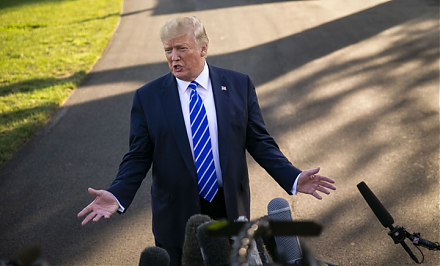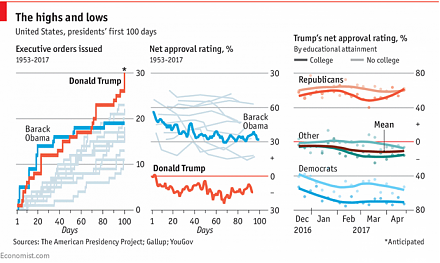

2017-05-13 07:28:00 Sat ET
stock market gold oil stock return s&p 500 asset market stabilization asset price fluctuations stocks bonds currencies commodities funds term spreads credit spreads fair value spreads asset investments
America's Top 5 tech firms, Apple, Alphabet, Microsoft, Amazon, and Facebook have become the most valuable publicly listed companies in the world. These tech firms are worth $2.9 trillion in total market capitalization, generate about $150 billion annual net income, and hoard $350 billion in net cash.
In fact, these tech giants hold about 80% of their cash stockpiles in offshore tax havens. In addition to their precautionary motive to maintain massive cash to safeguard against a potential global credit crunch and refinancing risk due to short debt maturity, there is a genuine and legitimate reason for these tech firms to engage in active, effective, and legitimate tax avoidance.
In the next few years, these tech firms plan to implement share repurchases to return decent and generous cash distributions to their shareholders.
In the highly probable scenario of a key Trump tax holiday for U.S. multinational corporations, these tech firms can repatriate $300+ billion to invest in onshore job creation, technological innovation, and manufacturing automation without any draconian tax penalties. These tech firms may repatriate sufficient cash to invest in new acquisitions of smaller startups that specialize in a broad range of proprietary technologies such as artificial intelligence, digital media, robotic automation, and virtual reality.
If any of our AYA Analytica financial health memos (FHM), blog posts, ebooks, newsletters, and notifications etc, or any other form of online content curation, involves potential copyright concerns, please feel free to contact us at service@ayafintech.network so that we can remove relevant content in response to any such request within a reasonable time frame.
2019-11-01 12:31:00 Friday ET

Kourtney Kardashian shares the best money advice from her father. This advice reminds her that money just cannot buy happiness. As the eldest of the Kardash
2018-07-03 11:42:00 Tuesday ET

President Trump's current trade policies appear like the Reagan administration's protectionist trade policies back in the 1980s. In comparison to th
2019-10-03 17:39:00 Thursday ET

President Trump indicates that he would consider an interim Sino-American trade deal in lieu of a full trade agreement. The Trump administration defers high
2017-11-13 07:42:00 Monday ET

Top 2 wealthiest men Bill Gates and Warren Buffett shared their best business decisions in a 1998 panel discussion with students at the University of Washin
2017-04-25 06:35:00 Tuesday ET

This nice and clear infographic visualization helps us better decipher the main memes and themes of President Donald Trump's first 100 days in office.
2019-04-07 13:39:00 Sunday ET

CNBC news anchor Becky Quick interviews Warren Buffett in early-2019. Buffett explains the fact that book value fluctuations are a metric that has lost rele